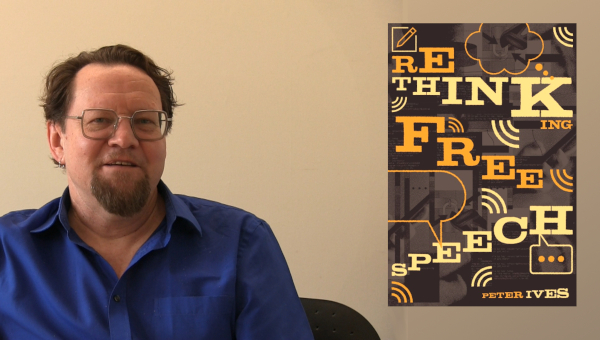No Fair Play Under Occupation: FIFA’s Neutrality Amidst Israel’s Genocide in Palestine
As the 2026 FIFA World Cup approaches, the world’s largest sporting event is set to unfold against the backdrop of Israel’s ongoing mass atrocities in Gaza and a growing global consensus that the Israeli state is engaged in genocide. Israel’s occupation of Palestine, the longest running occupation in modern history, forms the context for repeated calls for FIFA – the international governing organisation in soccer – to take action ahead of the 2026 World Cup. From formal appeals by the Palestinian Football Association to growing global solidarity movements demanding that Israel’s national team be banned from international soccer, at no time has the role of FIFA been as crucial as now. While South Africa’s case in the International Court of Justice against Israel drags through the machinery of bureaucracy and proceduralism, relevant organisations have made their conclusions clear that Israel is committing genocide, including Amnesty International, the United Nations Independent Commission of Inquiry, and The International Association of Genocide Scholars, among others.
Amidst these developments, FIFA’s continued silence leading up to the 2026 World Cup – hosted in the United States, Canada, and Mexico – is untenable. FIFA has routinely invoked its statutes of political neutrality in soccer to claim distance from calls to action against the apartheid state of Israel. The organisation’s selective enforcement of its own rules, banning Russia within days of invading Ukraine while shielding Israel for decades, exposes the deeper politics of neutrality. The question, then, is not whether international soccer is political but rather whose politics it serves.

The Rhetoric (and Myth) of Political Neutrality: FIFA’s History of Political Action and its Contradictions
FIFA’s statutes explicitly state that the soccer governing body must remain “neutral in matters of politics and religion.” The most stark instance of FIFA’s so-called neutrality came in 2018 when the Palestinian Football Association (PFA) brought the organisation before the Court of Arbitration for Sport. At issue were six Israeli clubs, based in illegal settlements in the West Bank, competing in the Israeli Football Association’s leagues. This is a direct violation of FIFA’s own statutes, which stipulate that clubs of one member association cannot play on the territory of another without their explicit permission. The PFA’s ask was simply to make FIFA enforce its rules, that is, to sanction the Israeli Football Association or, at the very least, allow Congress (composed of representatives from all member nations) to vote on the matter. FIFA’s Council refused: while acknowledging that the Israeli clubs in question do exist in the West Bank, FIFA described the situation as an “exceptional complexity” with “de facto circumstances.” FIFA’s Council further insisted that the status of the West Bank was a matter for “competent international public law authorities,” and therefore, FIFA had to remain neutral. When the PFA appealed, the Court of Arbitration for Sport ruled in FIFA’s favour, accepting their claim that taking action against Israel would effectively mean deciding the legal status of the West Bank, which was outside FIFA’s authority. The court also emphasised that FIFA’s Council had broad discretion over what proposals to place before Congress, and concluded that refusing to put the Palestinian motion to a vote did not amount to an abuse of power.
FIFA’s reasoning for inaction against the Israeli soccer association collapses when judged against its own history, as the organisation has indeed intervened numerous times in political conflicts. In 1976, after years of resistance and a mounting global sporting boycott, FIFA expelled apartheid South Africa from all their events. This was a direct product of sustained international pressure that made it impossible for FIFA to maintain business as usual. The expulsion became one of the most visible forms of global condemnation of apartheid in sports, demonstrating that soccer could be wielded as a powerful tool against racial oppression. When the Balkans descended into war and the international community imposed sanctions, FIFA swiftly suspended Yugoslavia from all competitions in 1992. The decision was justified as a matter of protecting soccer’s integrity, but it was inseparable from the wider geopolitical context of a collapsing state, international outrage over ethnic cleansing, and the country’s increasing isolation. The most recent – and perhaps the most striking – point of comparison for FIFA’s current inaction is the recent ban on Russia. In 2022, FIFA banned the Russian soccer team from international competitions within less than a week of Russia launching its full-scale invasion of Ukraine. The decision was hailed as taking a stand for human rights and international law, but it was also a reflection of Russia’s political isolation and the insistence of Western powers in demanding sporting sanctions.
By contrast, FIFA has utilised its rhetoric of neutrality in the case of the brutal exploitation of migrant labour under the kafala system in Qatar in the build-up to the 2022 World Cup. Gianni Infantino, FIFA President, had advised participating teams in the 2022 World Cup to “focus on football” and not get distracted by political debates, insisting that the pitch should remain untouched by politics.
These inconsistencies in FIFA’s political actions expose the myth of neutrality. FIFA has acted decisively in the past, and importantly, they have done so only when action aligned with the prevailing balance of global power. Evidently, FIFA as an organisation has, in fact, never been apolitical. The very act of selecting when to enforce its rules, deciding what constitutes state violence, and choosing which teams to ban from participating in their events is in and of itself political, and one that inevitably reveals their political stance. In the case of Israel and the ongoing genocide of Palestinians, FIFA’s choice to use neutrality as a shield is nothing but a continuation of their political alignment.
FIFA’s Violent Inaction and the Legitimization of the Israeli State
Amidst FIFA’s failure to take a stance, it is crucial to acknowledge that violence can be perpetuated both through action and inaction. Drawing on Achille Mbembe’s concept of necropolitics, Davies, Isakjee, and Dhesi (2017) use the term violent inaction to describe how power often operates through calculated abandonment rather than through direct acts of repression. To “let die” can be as brutal as to “make die.”
In 2006, when players of the Palestinian football team based in the West Bank and Gaza were denied exit visas, the Asian Football Confederation (AFC), whose parent organisation is FIFA, cancelled Palestine’s match despite repeated requests from the PFA to reschedule. In 2007, after Israel again refused exit permits for Palestinian team players, FIFA and the AFC awarded Singapore a 3–0 victory, once again ignoring protests from the PFA. These decisions punished Palestine and facilitated the exclusions and restrictions imposed by Israel.

FIFA’s indifference also supports the material and fatal violence on the ground as Palestinian players face existential barriers to participation. Tariq al Quto, a midfielder, was killed by the IDF in 2004. During Israel’s onslaught on Gaza in 2009, three national team players, Ayman Alkurd, Wajeh Moshtahe, and Shadi Sbakhe, were killed as their homes were struck by missiles. In 2024, Mohammed Barakat, one of Palestine’s most celebrated forwards, was killed when his house in Khan Younis was bombed. Further, the Palestine Stadium in Gaza has been bombed and rebuilt only to be destroyed again.
At the same time, as an organisation with immense power and influence, FIFA’s inaction amounts to complicity in legitimising the Israeli state. The 2022 iteration of the World Cup in Qatar garnered nearly 3 billion viewers. FIFA has 211 participating member nations, most of whom are vying for one of the 48 spots in the 2026 World Cup. Apart from the global visibility gained from participating in such a mega-event, there is also the cultural capital and national pride that success confers. What does it mean for this privilege to be extended to a nation that is actively engaged in a genocidal campaign? Since their illegal occupation of Palestine, Israel has structurally impeded the capacity of the Palestinian soccer team to participate in sporting events. In the midst of the mounting violence being endured by Palestinians, who are actively fighting for their very existence, FIFA continues to allow the representatives of their oppressors to compete on the pitch. Permitting Israel to compete on the global stage in a sport it has rendered unplayable for Palestinians amounts to the legitimisation of an apartheid state. Continuing to do so while it is actively engaged in genocide is a verdict on which lives are disposable.
The Context of the US being the Primary Host Nation of the 2026 World Cup
FIFA’s complicity cannot be separated from the geopolitical architecture within which it operates. The 2026 World Cup being hosted by the United States, alongside Canada and Mexico, is an extremely crucial detail in this regard. As Israel’s biggest backer in the political arena, the US has already made statements regarding their efforts to ensure Israel’s uninterrupted participation in international soccer. In September 2025, The Athletic reported that the Trump administration announced it would work to “fully stop any effort to attempt to ban Israel’s national soccer team from the World Cup,” following calls from the global community for FIFA to suspend Israel. This intervention is consistent with the United States’ broader role as Israel’s guarantor across international institutions – blocking resolutions, vetoing sanctions, and shielding its actions under the language of geopolitics.
The close personal ties between FIFA President Gianni Infantino and Donald Trump further reveal how international soccer and American power converge. Infantino has established an office in Trump Tower, embedding his organization quite literally within the architecture of political influence and wealth. Infantino has cultivated this deep alliance since at least 2018, when he appeared alongside Trump to promote the joint US–Canada–Mexico World Cup bid, and later described their partnership as crucial to FIFA’s future. Such close proximity underscores how soccer’s global governance is shaped within, and benefits from, the networks of US political power.
The political landscape of the event being hosted in relatively friendly terrain will also affect the force and type of mass resistance that is able to mobilize. Recent public demonstrations in Europe, particularly in Italy and Spain, are a testament to the way public sentiment has been shifting. In contrast, the United States still remains a place where support for Israel remains relatively high and where resistance to Israeli atrocities has been systematically suppressed. Canada has largely mirrored US policy, with federal officials condemning and restricting protests while reaffirming support for Israel.
Time to Blow the Whistle on FIFA
As the Israeli team prepare to face Norway and Italy in their upcoming World Cup qualifiers on 11 and 14 October 2026, FIFA’s resistance to calls for action, under the pretence of impartiality, exposes its alignment with global power. Pressure continues to mount from across the world: the Spanish Prime Minister has publicly called for Israel’s suspension from international sports, while the Turkish Football Federation has urged national soccer federations to demand that FIFA impose a ban. Soccer fans, too, have unfurled Palestinian flags and banners in stadiums demanding an end to Israel’s participation. In response, FIFA has recently doubled down on its inaction, invoking peace without justice and turning neutrality into an active political choice to protect Israel.
Every match Israel plays under FIFA’s protection normalises its ongoing genocide in Palestine and reaffirms the double standards and myth of neutrality in global sports. Sports has always been a potent soft-power tool and an arena to reflect the political struggles of the time. FIFA’s swift ban on Russia was, at least in part, influenced by member nations’ collective refusal to participate in matches against the Russian soccer team. While FIFA continues to defend the so-called integrity of the game through its complicity in apartheid, it is up to players and teams, and us as the global community, to refuse, reject, and resist. There can be no fair play under occupation. •
References
- Aksoy, Ibrahim. 2016. “FIFA Opens Office in Trump Tower.” CBS News, June 14.
- Al Jazeera. 2025. “Hundreds of Thousands Turn Out at Pro-Palestine Marches across Europe.” Al Jazeera, October 5.
- Al Jazeera. 2025. “Türkiye Athletes Call on FIFA, UEFA to Ban Israel’s Football Team.” Al Jazeera, September 27.
- Amnesty International. 2022. “Infantino’s Call to ‘Focus on the Football’ a Crass Abdication of FIFA’s Accountability for Migrant Worker Abuses.” Amnesty International, November 18.
- Amnesty International. 2021. “Qatar: Failure to Investigate Migrant Worker Deaths Leaves Families in Despair.” Amnesty International, August 26.
- Court of Arbitration for Sport (CAS). 2018. Palestine Football Association (PFA) v. Fédération Internationale de Football Association (FIFA), CAS 2017/A/5166 & 5405. Lausanne: Court of Arbitration for Sport.
- Davies, Thom, Arshad Isakjee, and Surindar Dhesi. 2017. “Violent Inaction: The Necropolitical Experience of Refugees in Europe.” Antipode 49 (5): 1263–1284.
- ESPN News Services. 2025. “Spain Prime Minister Wants International Sports Ban on Israel.” ESPN, September 17.
- Fédération Internationale de Football Association (FIFA). 2025. “FIFA Council Calls for Peace and Takes Key Decisions on Football Governance.” FIFA.com, October 4.
- Fédération Internationale de Football Association (FIFA). 2024. FIFA Statutes: Regulations Governing the Association. Zurich: FIFA.
- Fédération Internationale de Football Association (FIFA). 2022. “Qatar 2022: FIFA World Cup Audience Report.” FIFA.com. Accessed October 5.
- Rampling, Ali, and Henry Bushnell. 2025. “Donald Trump Administration Working to Stop Israel Being Banned from 2026 World Cup after UN Plea.” The Athletic, September 25.
- Socialist Project. 2024. “Canada, South Africa, and Genocide Charges Against Israel at the ICJ.” The Bullet, January 25.





